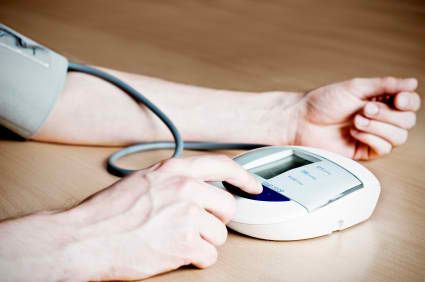High Blood Pressure Identified as Risk Factor for Stroke
In the official report released by the Centers for Disease Control and Prevention (CDC), it listed stroke as the fourth leading cause of death in the United States. It has also been noted that the number of people experiencing stroke continues to increase every year. Medical experts attribute this increase in incidence to the inability of patients to control the numerous risk factors associated with stroke.
 High Blood Pressure a Major Risk Factor
High Blood Pressure a Major Risk Factor
One risk factor that has been considered as a major reason for the increase in the number of stroke events is hypertension or high blood pressure. It has been estimated that the prevalence rate of high blood pressure among adult Americans is roughly 30 percent. This translates to over 65 million Americans, aged 18 years and above, as being considered as hypertensive.
Effect of High Blood Pressure on Arteries
Prolonged high blood pressure may damage the arteries that provide blood to the brain and other vital parts of the body. Once these arteries are weakened or damaged, they can become narrowed or clogged, which may cut off or reduce the supply of blood to the brain. With no oxygen and nutrients, the brain cells will die resulting to the condition called stroke.
In the hemorrhagic type of stroke, the arteries which may have been damaged by high blood pressure may rupture or burst near or in the brain. This may then cause bleeding into the tissues of the brain or in the space between the brain and skull, resulting to stroke. This type of stroke accounts for about 13 percent of all stroke cases.
What is High Blood Pressure?
High blood pressure (HBP) of hypertension is a medical condition wherein the force of the blood against the walls of the arteries is high enough that may cause health troubles. This is determined by the amount of blood pumped by the heart and the amount of resistance to the blood flow in the arteries. A person’s blood pressure may be higher if there is more blood pumped by the heart or if the arteries have become narrower.
What are the Symptoms of High Blood Pressure?
In most cases, no symptoms may appear even if the blood pressure readings may be far higher that what is considered normal. In extreme cases where hypertension may have reached dangerous levels, symptoms may surface in the form of a headache that is severe and intense, feeling of fatigue, pain in the chest, vision problems, difficulty in breathing, irregular heartbeat, dizziness, and a pounding sensation in the chest or neck.
Importance of Managing High Blood Pressure
Once a person is informed by his or her healthcare provider of the high blood pressure, it is very important to follow the therapy and recommendations of the doctor. Medications and other forms of therapies may be prescribed. But most of all, changes in lifestyle and behavior such as following the proper diet, engaging in exercises, reducing weight, and quitting smoking, must be made.
These treatment options and lifestyle changes must be complied if one does not wish to suffer from stroke. Doing this may not only be good for hypertension, but also for other heart related conditions. This may also benefit patients suffering from atrial fibrillation since it is well recognized that stroke is a complication of the common atrial fibrillation.
References:
heart.org/HEARTORG/Conditions/HighBloodPressure
uptodate.com/contents/the-prevalence-and-control-of-hypertension
mayoclinic.org/diseases-conditions/high-blood-pressure